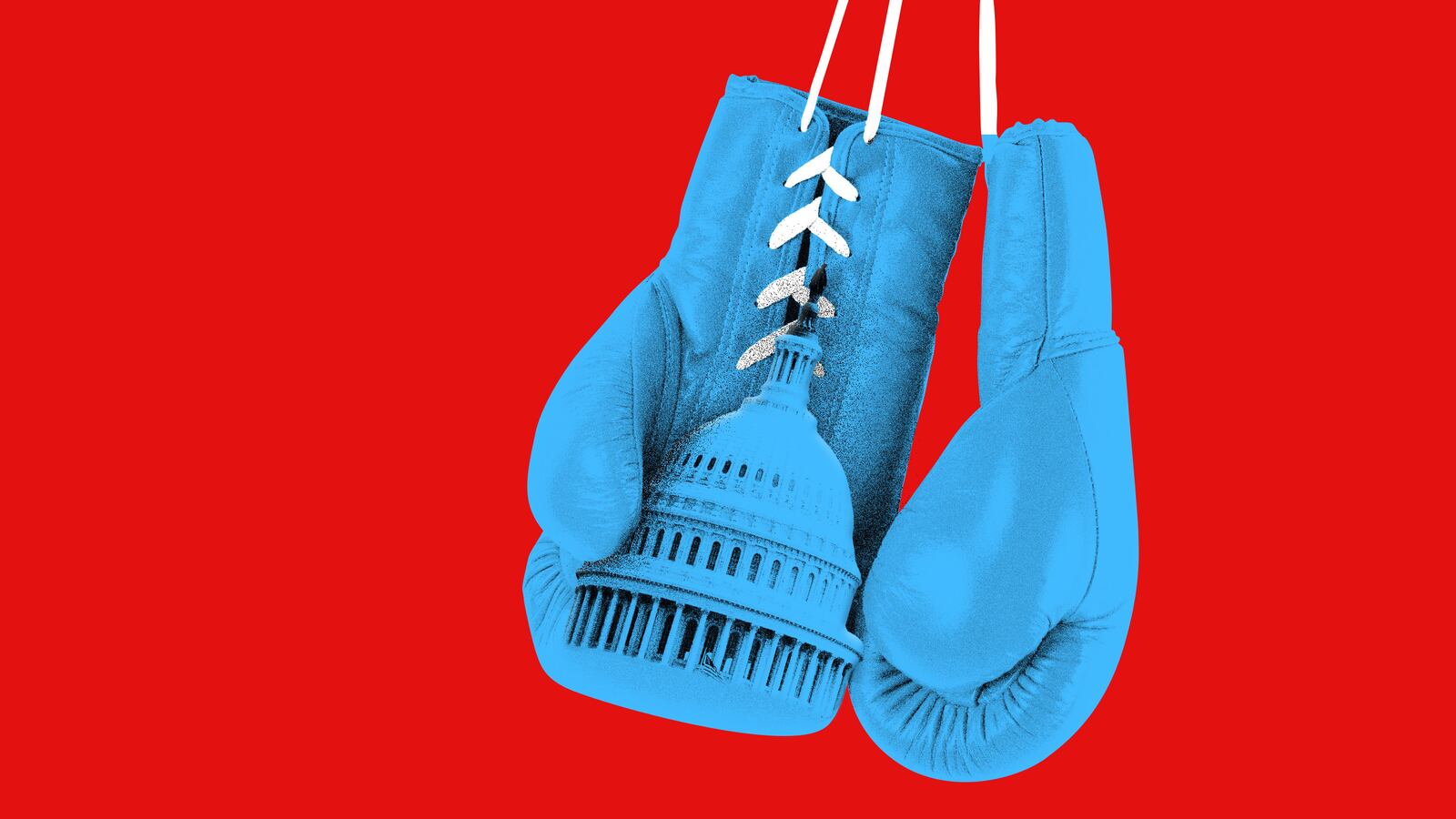President Trump and his minions do not fear House Democrats. House Democrats must change that.
After the 2018 election, House Democrats said bravely that they would hold Trump accountable, unlike obeisant House Republicans. House Democrats would demand information, and if Trump rebuffed them, they would exercise their subpoena power.
People have to obey subpoenas, right?
Everyone familiar with congressional oversight in the last two administrations knew what would happen. House Democrats would subpoena documents and testimony, Trump would call House investigations a partisan witch hunt and refuse to provide anything, and House Democrats would then face an inadequate set of remedies for defiance of their subpoenas and the political risk of appearing despotic on the one hand or feckless on the other.
The House has enforced subpoenas through civil lawsuits for a decade, a procedure now called “civil contempt.” The lawsuits ask the court to decide that the House is entitled to the subpoenaed documents and testimony and to order that the administration comply with the subpoena. If the person subpoenaed does not comply with the court order, then the person is guilty of contempt of court. But litigation will likely take months or years, even if the parties act in good faith to resolve the lawsuits, which Trump will not. So there is little for Trump’s minions to fear from civil contempt.
But House Democrats have alternatives.
Disobedience of congressional subpoenas is criminal contempt of Congress, just as disobedience of court subpoenas is contempt of court. The statutes for contempt of court and contempt of Congress are substantively but not procedurally the same.
The statute for criminal contempt of Congress requires that the House or the Senate “certify” facts that constitute contempt “to the appropriate United States attorney, whose duty it shall be to bring the matter before the grand jury for action.” The Department of Justice will only prosecute whom they please, however, statute or no statute. The current attorney general will not prosecute disobedience to a subpoena issued by any congressional committee not chaired by Lindsey Graham, and he certainly will not prosecute himself.
A decade ago, when I represented a North Carolina district in Congress, I introduced legislation to require that a private attorney prosecute contempt of Congress if government prosecutors fail to act.
I introduced the legislation in 2009 to strengthen Congress’ power to enforce subpoenas because the Bush administration made extravagant claims to executive authority that encroached on the powers that the Constitution assigned Congress. We’d be better off if Congress had enacted the legislation. I wish I’d pushed harder.
But legislation may not be necessary. Federal judges appointed private attorneys to prosecute contempt of court well before the federal rules of court codified the practice in 2002. The Supreme Court approved the longstanding practice in 1987. “If the Judiciary were completely dependent on the Executive Branch to redress direct affronts to its authority,” the court said, “it would be powerless to protect itself if that Branch declined prosecution.” The courts’ power to punish for contempt “is essential to the administration of justice,” the court said.
The Supreme Court first held in 1821 that the House and the Senate had the same inherent power to protect themselves from contempt, and for the same reason: “the principle of self-preservation.” The argument that the House lacked inherent contempt power, the court said, “obviously leads to the total annihilation of the power of the House of Representatives to guard itself against contempts and leaves it to be exposed to every indignity and interruption that rudeness, caprice, or even conspiracy, may meditate against it.”
But when Congress first enacted the criminal contempt of Congress statute in 1857, private attorneys under contract, not full-time employees of the executive branch, prosecuted federal crimes. The private attorneys’ client for prosecution of criminal contempt of Congress was the House or the Senate, not the attorney general. The procedure for prosecution of criminal contempt of Congress therefore followed the existing practice for prosecution of criminal contempt of court, and Congress and the courts had the same independent means to protect themselves from contempt.
In other words, if William Barr and Donald Trump’s other minions challenge Congress’ oversight powers and lose, then they would face “imprisonment in a common jail for not less than one month nor more than twelve months.”
In addition, the legislation that I introduced a decade ago provided that the House and Senate could impose fines under their inherent power to remedy defiance of subpoenas. But again, legislation may not be necessary.
Neither the House nor the Senate appear ever to have imposed a fine for contempt. But scattered throughout court decisions and other legal authorities are references to “the power to fine and imprison” that is equal to the power of courts. The courts have imposed fines for contempt of court, which the Supreme Court has upheld.
Monetary fines as a remedy for contempt of Congress have many advantages over incarceration. Neither the House nor the Senate has used their inherent power to incarcerate for contempt since 1935, and for good reason. A vote by the House to incarcerate a contemnor will not have the same legitimacy in the eyes of Americans that court orders have, no matter how clear the law or judicious the procedures. With respect to senior administration officials, there is another nightmarish possibility: an armed confrontation between the House Sergeant-at-Arms sent to detain an administration official and the official’s security detail. As attorney general, Barr has a security detail that is armed to the teeth.
A monetary fine avoids those problems. The House can vote to impose a fine for each day a contemnor refuses to comply with the subpoena, and then address politically advantageous issues—health care and infrastructure, for instance—while the meter quietly runs.
A contemnor upon whom a fine is imposed can challenge the fine, but not without risk: the meter will run while the court decides. If the contemnor loses in court, then the contemnor would be liable for the accrued fines.
Fines for contempt of court must be “reasonable,” but that does not mean just a nuisance. Barr, for instance, was a partner at a law firm with annual profits per partner of more than $5 million, and Barr was not just any partner. A reasonable monetary fine for Barr would be one that motivated him not to let the meter run for two or three months.
House Democrats need not and should not pick one strategy to enforce their subpoenas. They should bring a lawsuit under civil contempt procedures. They should impose a daily monetary fine for defiance of House subpoenas, perhaps one that escalates over time. And they should ask the court to empower a private attorney to prosecute criminal contempt of Congress on the House’s behalf.
The Bush administration’s effort to consolidate power in the presidency, the effort that inspired the legislation I introduced a decade ago, was just as sinister as it appeared in the movie Vice. Trump’s attempt to deny Congress’s constitutional powers is far more extreme.
The separation of powers is a foundational principle of American democracy. The Constitution provides each branch “necessary constitutional means and personal motives to resist encroachments on the others,” James Madison said, so that “each may be a check on the other” and thus “a sentinel over the public rights.”
House Democrats of course must consider political consequences, but they cannot shrink from this fight.







